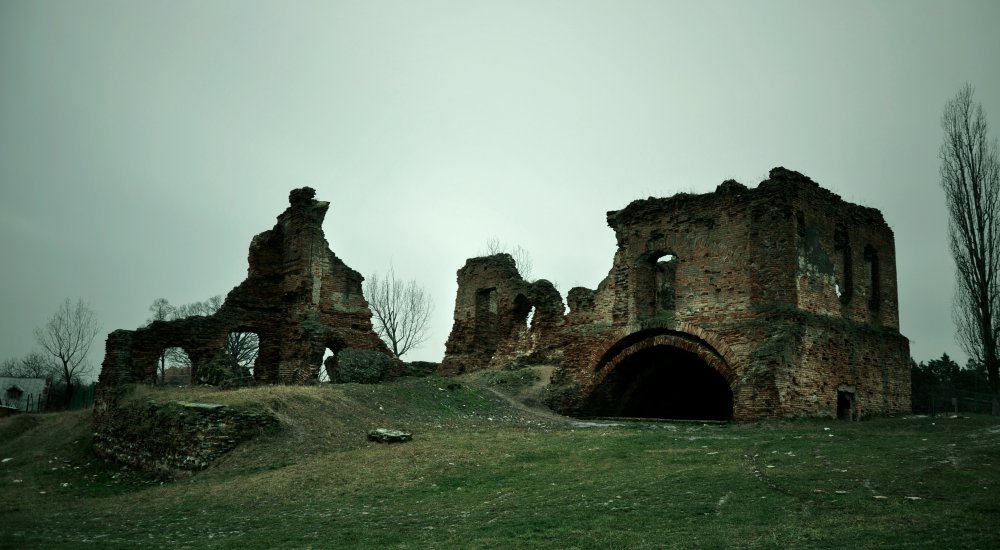HORIZON EUROPE┋Bridging historical past and future potential through conservation, preservation, and adaptive use of Europe’s contentious and dissonant heritage
HORIZON-CL2-2025-01-HERITAGE-08

Expected Outcome
Projects should contribute to all the following expected outcomes:
- Dialogues between academics, local authorities and communities are strengthened by a Strategic Research and Innovation Agenda identifying trends, drivers, gaps and opportunities and highlight the added value for further research in this area.
- Academic researchers and practitioners (including from SSH disciplines) collaborate to apply tangible research findings in real-world contexts, addressing challenges posed by contested heritage, threatened by neglect, deterioration or abandonment.
- Cultural and Creative Industries (CCIs)[1] and local authorities have access to innovative solutions to revitalise and reconsider contested cultural heritage to ensure its preservation, conservation, and adaptability for use while engaging future generations in tackling complex historical challenges.
- Policy makers and public authorities are equipped with actionable recommendations to tackle the lack of awareness on contested heritage, with a focus on education and sustainable cultural tourism as key areas for action.
Scope
Europe's rich heritage includes numerous objects, documents in libraries, museums, and archives, but also sites and cultural landscapes that recall complex and often troubled pasts. These heritage assets, often contested and frequently neglected or at risk of deterioration or abandonment, pose significant challenges for preservation, conservation, interpretation, and engagement. Gaining a better understanding of the dissonance and contestation surrounding cultural heritage assets is crucial not only for safeguarding memory and heritage but also for fostering historical understanding, cultural dialogue, and reconciliation on persisting dissonances.
Proposals should explore the multiple perspectives on troubled pasts and their impact on cultural heritage, with a focus on heritage assets connected to colonial, totalitarian and authoritarian regimes which may be linked biased or discriminatory beliefs. By engaging with such complex and often painful legacies, proposals should contribute to a broader reflection on participatory approaches in cultural heritage governance. Proposals are also encouraged to adopt a gendered and intersectional approach to advance gender equality and build more inclusive societies. Furthermore, the interplay between culture and nature in managing cultural landscapes is also crucial, requiring a balance between human and environmental values to ensure sustainable preservation.
Proposals should establish a collaborative and multidisciplinary network of professionals. It could rely on expertise from given disciplines and fields, such as: anthropology, history, heritage science (focused on conservation and exhibition and museum curation), media and intercultural communication, political science and science education. Researchers and experts with thematic expertise in the field(s) of memory studies, war and conflict, decolonisation, post-totalitarian regimes, and/or intersectionality could bring an added value. The integration of cultural and creative industries and local authorities could contribute to ensure the real-world applications of this research network.
This collaborative network should develop a comprehensive Strategic Research and Innovation Agenda for the preservation, conservation, transmission, and adaptive reuse of contested and dissonant heritage across Europe. This agenda should identify trends, clear drivers, gaps and opportunities to highlight the added value of complementary research activities or initiatives in this field. The proposed consortium should have an active role in promoting critical dialogues on remaining controversies and their lasting impacts on contemporary societies. Proposals should provide an assessment offering policy recommendations for the documentation, revitalisation (such as better understanding preservation, restoration, transmission, and transformation) and adaptive reuse of dissonant and contested heritage assets to preserve historical and cultural values. The recommendations should support public administrations, particularly local authorities, and the Cultural and Creative Industries in managing contested heritage and engaging with local community.
Proposals should shape recommendations to leverage contested objects, documents, sites and cultural landscapes for educational and cultural tourism purposes, ensuring historical understanding, cultural dialogue, and reconciliation. To address the challenges posed by these heritage assets, proposals should integrate innovative approaches that prioritize sustainability and preservation for future generations.
Proposals could aim to develop educational programmes to target various audiences, including young people, local communities, and international tourists to ensure the engagement of future generations in tackling complex historical challenges. Pilot programmes could be implemented to assess the effectiveness of these tools and recommendations. Public bodies with an interest in supporting the long-term sustainable use of these educational tools could be involved in these efforts.
Recommendations for the integration of contested and dissonant heritage assets into sustainable tourism practices that respect their sensitive nature and contribute to the sustainable development of local communities, is another aspect that should be considered in the strategic agenda. Utilizing existing digital tools and platforms to promote virtual tours, augmented reality experiences, and interactive educational content, making these heritage assets accessible to a broader audience and enhancing visitor experience could be considered as an added value.
While shaping the above-mentioned Strategic Research and Innovation Agenda, the proposal should identify key EU-funded projects contributing to this research area and suggest how to strengthen collaboration and networking in this field. It could also use results from existing evidence-based research, including insights from EU-funded projects. For that purpose, proposals are encouraged to network with and build on previously funded projects under Horizon Europe, in particular HORIZON-CL2-2023-HERITAGE-01-04 Cultural heritage in transformation – facing change with confidence calls, HORIZON-CL2-2024-HERITAGE-01-04 Europe’s cultural heritage and arts – promoting our values at home and abroad, Horizon 2020 or other EU programmes, e.g. Global Europe[2] as appropriate. Applicants are also encouraged to consider the services offered by the European Research Infrastructure for Heritage Science[3].
Where applicable, proposals should leverage the data and services available through European Research Infrastructures federated under the European Open Science Cloud, as well as data from relevant Data Spaces. Particular efforts should be made to ensure that the data produced in the context of this topic is FAIR (Findable, Accessible, Interoperable and Re-usable).
International cooperation is encouraged.
[1] CCIs as defined in the European Parliament Resolution ‘A coherent EU policy for cultural and creative industries’:https://eur-lex.europa.eu/legal-content/EN/TXT/PDF/?uri=CELEX:52016IP0486&from=EN
[2] https://ec.europa.eu/international-partnerships/global-europe-programming_en
